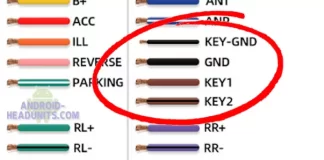You can often find the AEC-Q100 certification mentioned in the parts list of some Android Headunits. Although no fully assembled Android headunit has ever passed this level of certification, and will never likely be, some internal components may have passed this test. Whether or not it sways the sale in the favour of the vendor is unknown but having a certification looks impressive, even if it is for just one minor component of a complete system, We delve into what AEC-Q100 testing and certification means and you can decide how it impacts on the Android Headunit.
Introduction
The automotive industry demands high reliability and performance from its electronic components. AEC-Q100 is a critical standard that addresses these demands, setting guidelines for the qualification of integrated circuits (ICs) used in automotive applications. This document provides an in-depth exploration of AEC-Q100 testing and certification, detailing the processes involved, the significance of passing these tests, and the companies that provide these services.
What is AEC-Q100?
AEC-Q100, established by the Automotive Electronics Council (AEC), is a failure mechanism-based stress test qualification for integrated circuits. This standard ensures that ICs can withstand the rigorous conditions they will face in automotive environments. The AEC comprises major automotive manufacturers and electronic component suppliers, collaborating to create and uphold these standards.
Importance of AEC-Q100 Certification
Obtaining AEC-Q100 certification is crucial for IC manufacturers targeting the automotive market. This certification demonstrates that their products meet the stringent reliability and performance requirements for automotive applications. It assures car manufacturers that the components will perform reliably under the harsh conditions typical in automotive environments, such as extreme temperatures, vibrations, and electrical stresses.
Key Aspects of AEC-Q100 Testing
AEC-Q100 testing is comprehensive, covering a wide range of stress tests to evaluate the robustness of ICs. The primary tests include:
1. High-Temperature Operating Life (HTOL)
HTOL tests assess the reliability of ICs over prolonged exposure to high temperatures while operating under electrical stress. This test simulates long-term operation and identifies potential failure mechanisms that could occur in real-world applications.
2. Temperature Cycling
This test subjects ICs to repeated high and low temperatures cycles, simulating the thermal stresses encountered in automotive environments. It helps identify thermal expansion and contraction issues, such as solder joint fatigue.
3. Humidity and Temperature Bias (HAST)
HAST evaluates the effects of humidity and temperature on ICs. It accelerates the conditions to identify potential reliability issues related to moisture ingress, which can cause corrosion or other moisture-related failures.
4. Electrical Characterization
This testing verifies that ICs meet their specified electrical parameters over the full temperature range. It includes tests like static and dynamic parameters, timing, and functionality checks.
5. Electrostatic Discharge (ESD) Testing
ESD tests ensure that ICs can withstand electrostatic discharges that may occur during handling or operation. This is critical to prevent damage from ESD events, which are common in automotive environments.
6. Latch-Up Testing
Latch-up tests verify that ICs can withstand voltage spikes without entering a high-current state that could lead to device failure. This test is essential for ensuring the robustness of ICs in environments with fluctuating voltages.
Companies Providing AEC-Q100 Testing and Certification
Several companies specialize in providing AEC-Q100 testing and certification services. These companies offer comprehensive testing solutions to ensure ICs meet the standard’s stringent requirements. Some of the prominent companies include:
1. Texas Instruments (TI)
Texas Instruments is a leading provider of ICs for automotive applications and offers extensive AEC-Q100 testing services. TI’s rigorous qualification process ensures its products meet or exceed AEC-Q100 standards, providing reliability and performance assurances to automotive manufacturers.
2. Infineon Technologies
Infineon Technologies specializes in automotive semiconductors and provides AEC-Q100 testing and certification for their products. Infineon’s testing procedures cover a wide range of stress tests to ensure the durability and reliability of their ICs in automotive applications.
3. NXP Semiconductors
NXP Semiconductors is another major player in the automotive semiconductor market, offering AEC-Q100 qualified products. NXP’s comprehensive testing protocols ensure their ICs meet the rigorous demands of automotive environments.
4. STMicroelectronics
STMicroelectronics provides a range of AEC-Q100-certified ICs for automotive applications. Their testing and certification processes are designed to ensure the highest levels of reliability and performance.
5. ON Semiconductor
ON Semiconductor offers a variety of AEC-Q100-qualified products, focusing on delivering robust and reliable solutions for automotive applications. Their extensive testing and qualification processes ensure their products meet the stringent requirements of AEC-Q100.
Detailed Breakdown of AEC-Q100 Testing Procedures
High-Temperature Operating Life (HTOL) Test
The HTOL test involves subjecting the IC to elevated temperatures (typically around 125°C to 150°C) while it is operational. This accelerated test aims to simulate several years of normal operating conditions within a shorter timeframe. By doing so, manufacturers can identify potential failure mechanisms such as electromigration, time-dependent dielectric breakdown (TDDB), and other temperature-related stresses.
Temperature Cycling Test
Temperature cycling involves repeatedly exposing the IC to a wide range of temperatures, typically from -40°C to +125°C or higher. This test helps identify mechanical and material stresses due to thermal expansion and contraction. Failures identified during this test often include solder joint fatigue, package cracking, and bond wire breaks.
Humidity and Temperature Bias (HAST) Test
In the HAST test, ICs are exposed to high humidity (85% relative humidity) and elevated temperatures (up to 130°C) while applying electrical bias. This accelerated test simulates the effects of prolonged exposure to humid environments. It is beneficial for identifying moisture-related failure mechanisms such as corrosion and delamination.
Electrical Characterization Tests
These tests ensure that ICs function correctly across the specified operating temperature range. Electrical characterization includes:
- Static Parameter Testing: Verifying parameters like input/output voltages, current consumption, and leakage currents.
- Dynamic Parameter Testing: Evaluating performance aspects such as propagation delay, switching times, and frequency response.
- Functional Testing: Ensuring the IC performs all its intended functions correctly under various conditions.
Electrostatic Discharge (ESD) Testing
ESD testing evaluates the IC’s ability to withstand high-voltage static discharges. This involves subjecting the IC to various ESD models, including the Human Body Model (HBM), Machine Model (MM), and Charged Device Model (CDM). These tests simulate the ESD events that ICs might encounter during manufacturing, handling, or operation.
Latch-Up Testing
Latch-up testing subjects the IC to conditions that could potentially trigger a high-current state, which can lead to device failure. This test typically involves applying over-voltage conditions to the IC’s inputs and outputs and monitoring any latch-up events. The goal is to ensure the IC can recover from such conditions without permanent damage.
The Impact of AEC-Q100 Certification
Passing AEC-Q100 tests and obtaining certification has significant implications for IC manufacturers and automotive OEMs (Original Equipment Manufacturers).
For IC Manufacturers
- Market Access: Certification is often a prerequisite for entering the automotive market. Without it, IC manufacturers may struggle to have their products accepted by automotive OEMs.
- Competitive Advantage: Certification demonstrates a commitment to quality and reliability, helping manufacturers differentiate their products in a competitive market.
- Reduced Warranty Costs: Ensuring high reliability makes certified ICs less likely to fail in the field, reducing warranty claims and associated costs.
For Automotive OEMs
- Reliability Assurance: Certification assures that the components will perform reliably under harsh automotive conditions, reducing the risk of field failures.
- Safety and Compliance: Reliable electronic components are crucial for vehicle safety and compliance with regulatory standards.
- Cost Savings: Using certified components can lead to long-term cost savings by minimizing failures and the need for replacements or repairs.
Real-World Examples and Applications
Advanced Driver Assistance Systems (ADAS)
Advanced Driver Assistance Systems (ADAS) rely heavily on electronic components that must perform reliably under various conditions. AEC-Q100 certified ICs are essential for ensuring these systems’ reliability and safety, including features like adaptive cruise control, lane departure warning, and automatic emergency braking.
Electric and Hybrid Vehicles
Electric and hybrid vehicles use numerous electronic components for battery management, powertrain control, and energy recovery systems. AEC-Q100 certification ensures that these components can withstand the thermal, electrical, and mechanical stresses typical in such applications, enhancing the vehicle’s overall reliability and performance.
Future Trends in AEC-Q100 Testing and Certification
As the automotive industry evolves, so too do the requirements and expectations for electronic components. Emerging trends include:
Increased Complexity and Integration
The growing complexity and integration of electronic systems in vehicles demand even more rigorous testing and qualification processes. This includes not only traditional ICs but also advanced technologies like System-on-Chip (SoC) and multi-chip modules.
Focus on Cybersecurity
With the rise of connected and autonomous vehicles, cybersecurity has become a critical concern. Future AEC-Q100 standards may include tests to ensure the resilience of ICs against cyber threats and hacking attempts.
Sustainability and Environmental Considerations
There is a growing emphasis on sustainability and reducing the environmental impact of electronic components. Future testing standards may incorporate assessments of the environmental footprint of ICs, including their energy efficiency and recyclability.
Conclusion
AEC-Q100 testing and certification play a vital role in ensuring the reliability and performance of integrated circuits used in automotive applications. By adhering to these rigorous standards, IC manufacturers can assure automotive OEMs of the durability and safety of their products. Companies like Texas Instruments, Infineon Technologies, NXP Semiconductors, STMicroelectronics, and ON Semiconductor lead the industry in providing certified components that meet these high standards. As the automotive industry continues to evolve, the importance of AEC-Q100 certification will only grow, ensuring that the vehicles of tomorrow are equipped with the most reliable and robust electronic systems.








